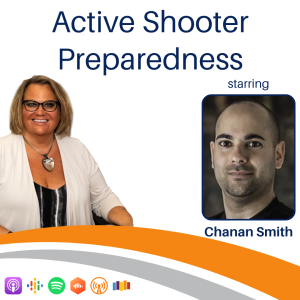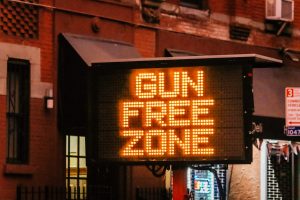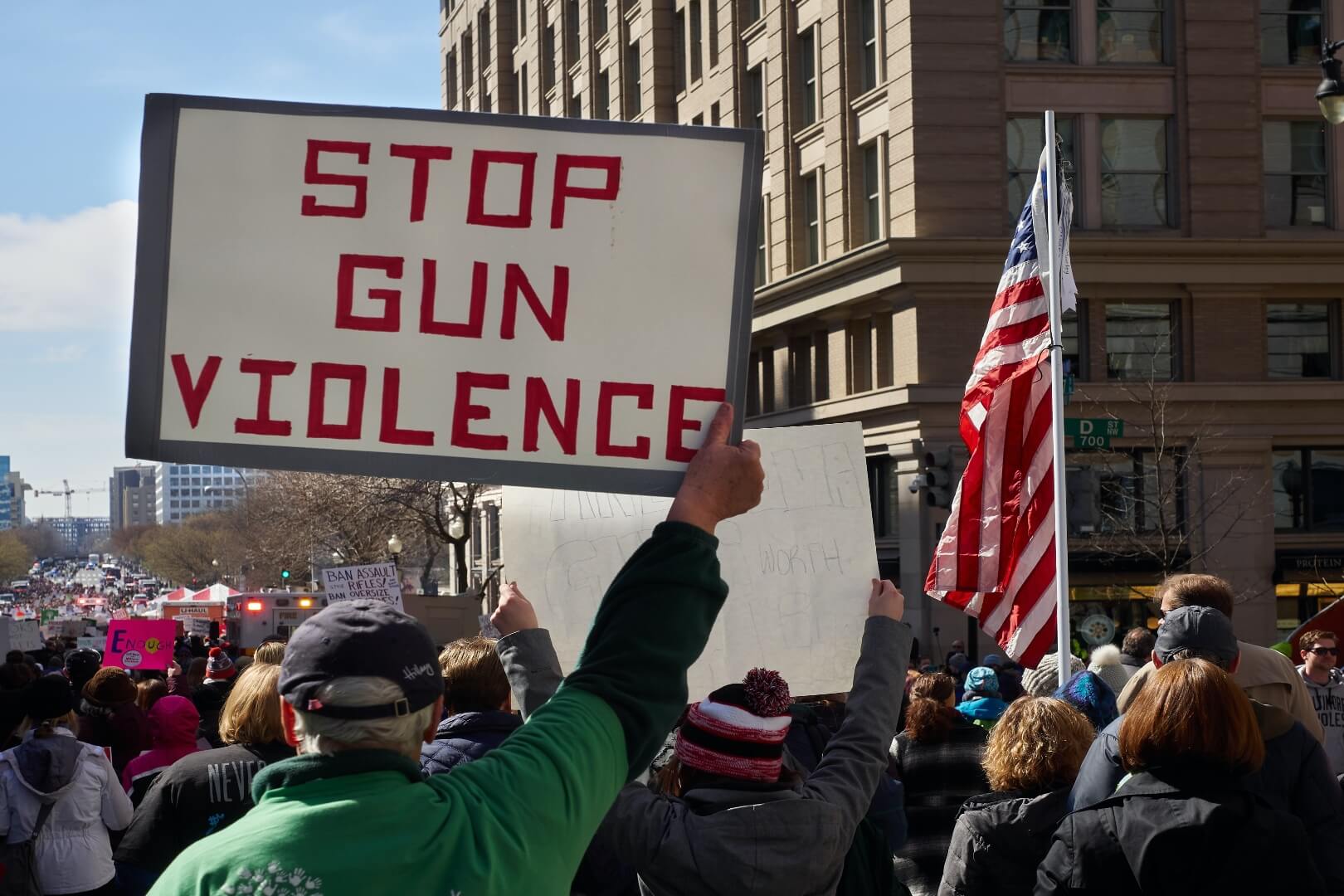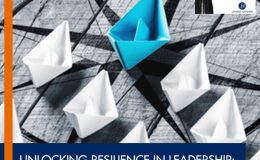
Active shooter preparedness is a subject we hear about all too often in this day and age. In this episode, Janine Hamner Holman sits down with Chanan Smith, a safety and preparedness leader, to discuss the importance and techniques of active shooter preparedness.
GUESTS: Chanan Smith | LinkedIn, Instagram
HOST: Janine Hamner Holman | [email protected] | LinkedIn, Facebook, Instagram
What am I paying attention to? A lot of what we talk about here are things we’re not paying enough attention to in the world of work. When we don’t pay enough attention to these things, to listening or communicating well, or being authentic, or diversity, equity, inclusion, and belonging, or having people feel they belong, for heaven’s sake, things can happen.
What we haven’t yet talked about is what to do if something really bad happens. Unfortunately, we are all living in a world where tragedy happens, where mass shootings happen, where people go into workplaces because they are upset with somebody who works there or they are upset about how they were treated, and the numbers are shocking about how frequently this is actually happening.
It only gets onto our radar when the media decides to pick it up, but the reality is these things are happening more and more frequently. I have invited an amazing guest to the show. His name is Chanan Smith and he’s an expert in the world of what to do in an emergency, and what to do in an active shooter situation.
I got to participate with him in a presentation we both did where we talked about safety. I was talking about it from the perspective of psychological safety, how you have your people feel safe, and what that creates.
He was talking about it in terms of physical safety. I was so struck by what would be my natural instinct in that situation, if God forbid I ever found myself in that situation, or if I got a text, email, or phone call from somebody who was in that situation. Maybe I would goodbye, but also what do I do?

What my counsel would’ve been is entirely wrong. I became passionate about having Chanan come here and talk with us about what we need to do in this kind of situation. Chanan, I would love it if you start. Welcome to the show. I’m so excited to have you here.
Thank you, Janine. I’m excited to be here. It’s a tough topic, but yes, it’s so important to educate people, teach them, and empower them and their organizations. I love being here on the show.
What I do professionally is empower people. It’s about something totally different. I felt like there was great synergy between my talking about safety in the workplace in terms of having people feel safe and belong and what that creates inside of organizations.
It also leads to what to do if things go terribly wrong, if you’re at the grocery store and things go wrong. Unfortunately, these things are happening all over the place. Chanan, will you tell us a little bit about your background? The experience you bring to this is so rich and multidimensional from the experiences you’ve had.
Absolutely. My name is Chanan. My last name is Smith. People have a hard time seeing that. My dad is from New York. He went to Israel and of course, I was born in Israel. I was born right outside of Bethlehem in a very beautiful place. My whole life, I lived in Jerusalem, starting from when I was about nine years old. I traveled by bus because that’s what we do. We go by bus.
Even when you’re that young to your school, public transportation is a regular occurrence. I remember we were one of the last stops in an area right next to my school. Somebody got on a bus with a knife and wanted to stab people on the bus. It wasn’t only kids, it was public transportation.
The driver was older, and he was not in navy seal condition. He got out of his chair, kicked the guy, and overpowered him. He saved all of us. I understand you don’t need to be completely athletic. You don’t need to be a 25-year-old. I think that was the day I made a decision that it was what I wanted to do in life.
My parents always tell me, “You were blessed that not many people live out what they wanted to do when they were teenagers or kids.” I went to the Israeli Defense Forces. I was a sharpshooter. When I came into the IDF, I started up as a sharpshooter myself. Then I became a lieutenant. Throughout my years I commanded over 200 soldiers and 45 at a time. I never lost a soldier.
Which is amazing.
After that, I came to the United States. I wanted to make decisions about continuing my career. It took me back into the security world. I tried to get out of it, but it pulled me back in. I realized I love educating people. Whether it’s my soldiers, government agents, or corporations, I love educating people on how to be safe, how to prevent, and how to plan for if something happens, to make sure it’s the things we need to do.
Thank you so much for that. I love knowing how people’s journeys began because that kernel of something often gets created when we’re young. Thank you for sharing your story.
One of the things you shared when you and I got to present is that my normal instinct of what to do in a situation of that sort would be to either run or hide.
You told us that’s not the right thing to do. Help us understand why that’s not the right thing to do, and then let’s talk about what the right thing is to do, and what the way to empower ourselves around this is.

Absolutely. The running mindset is something we do as a fight, fight, or flee. The problem with running as a whole, we were trained from a young age that if there’s fire, when we do fire drills in school, that’s what made us have running in our mindset. The problem with running is you don’t know if you are putting yourself in more danger or more harm.
I went to a law firm, a major law firm which was very secure. I pulled the fire alarm switch because they told me, “There’s no way someone can enter this facility. There’s no way they can do everything.” I knew right away that if I pulled it, everybody would come out.
As humans, we are triggered to run. Unfortunately, in the case of the Parkland shooting, and in the case of the movie theater, we saw the running did not pay off to what it was for the casualties. When they chose to run, it was a problem. Here’s an equation. When a person is in front of you or is about to come or wants to threaten you, if you choose to distance yourself from them, it means you’re giving them more time to act.
When you’re giving them more time to act, the pressure is declining. There is no pressure, so their accuracy goes up. If the accuracy goes up, you are going to be in a very severe injury. It doesn’t matter if it’s a stab or a gunshot, it’s the same mentality. However, if you flip it, if we decide to do something else than running, what can we do?
If you decide to do something different than running, we are taking away the distance. We’re taking away the time, which means we are increasing the pressure, which makes them less accurate. How well can you do a task if I give you infinite time versus if I give you two seconds?
A lot of people, like you said, naturally have the tendency to run, but you put yourself in a lot more danger when you try to get out. Now, I don’t disagree with running, but you need to know when it should be applied if the situation is there.
Unfortunately, people use it way too much and in the wrong circumstances. I’ll give examples of when running is a good thing and when you should have an alternate plan.
I want to come back to something you touched on, which is our instinct because of how we’ve been trained that if a fire alarm gets pulled, if a fire alarm is going off, we go outside. One thing you said in the presentation you and I got to do is that we should challenge that idea in today’s world. Can you expound on that a little bit? If a fire alarm is going off, why would we not leave the building, and what should we do instead?
Absolutely. This is the number one tactical way for criminals to get you out of anything. This is, by far, the smartest way to get somebody out. I’ll give you an example. If you are in an office building and I’m going to get everybody out of the office building, I’ll flip the switch.
Everybody’s going to come out without question. The doors are going to be completely open because they are fire-coded. I’m going to walk right in and I’m going to have no problem doing whatever I’m doing. If it is to harm people, you are coming to me. I don’t even need to walk in. You’re coming to me in a straight line. If you are in a hotel room with your family and somebody wants you out of that room, that’s what they’ll do. I have a few suggestions.
Number one, and by the way, in Parkland, I did a presentation at one of the synagogues, and I had an older gentleman walk up to me and say, “I have to tell you something about Parkland. My granddaughter survived the attack because when he flipped the alarm, and that’s what he did, but it was twice that day, they had two fire alarms that day.
Not many people know that. She questioned it. She said, ‘Wait a minute, why are there two fire alarms?’ She grabbed her brother. She saved herself and she saved her brother because of two seconds.”
If you don’t see fire and you don’t smell smoke, you have two seconds to question it. If you are in a restaurant, watch what the crew is doing in the restaurant. If you are in a business, look around, and see the bigger picture. Why is everyone going out? Where’s the fire? You have time, to check if you’re not seeing it.
If you’re in a hotel room, call the people at the front desk to ask if it’s a routine drill. You have to take a few seconds to realize what’s going on because that’s what’s going to save your life like she did in Parkland.

That’s such an important thing for people to start thinking about. I work in a building where the fire alarm seems to go off all the damn time. It’s quite annoying. It’s very loud. My instinct is both to leave, maybe there’s a fire, even though it goes off all the time, so probably there’s not.
Also, it’s loud and I want to get away from it. It might be a good idea for me to get some earplugs to put in when the fire alarm goes off because usually, it’s nothing. What if it was going off? I work in a building with businesses on the bottom and residents on the top.
What if, unfortunately, somebody who wants to do harm is trying to get people out of the building in order to do harm? What if I just stayed in?
You have to question it and see if there is an emergency. If there is no emergency, you have to stay in. When there is an immediate emergency in front of you, you will know.
When the door is hot you’ll know the time to go. One of the things that was so powerful was that you showed a screenshot of a parent who had gotten messages from their child who was at the nightclub in Florida when there was an active shooter situation.
Can you describe those texts? Then let’s talk about what you would counsel somebody to do if they got those texts.
The texts read something along the lines of, “Mom, In the club, they’re shooting. He is coming, I’m trapped in the bathroom. He’s going to kill me. I think I’m going to die.”
The mom responds with, “What club are you in?”
When I do this exercise, I give people, as parents, three text options to reply. There are three responses parents usually give.
When we did this you asked people to say what their responses would be. I said my response would be “Hide or run.” Part of my thought was they said they were hiding in the bathroom.
One of my thoughts was, “Can you get through the ceiling tile? Can you get someplace where maybe they won’t think to come?” That is not the right thing to do. can imagine nothing worse as a parent than knowing your child is in immediate danger like that and how frightened your kid is.
What you want to do is help them and say it’s going to be okay. Of course, you don’t know it’s going to be okay. If we’re ever in that horrible situation where we’re getting a message from somebody we love, a parent, child, best friend, brother, partner, or coworker, what’s the right thing to say to help them empower themselves in that incredibly scary situation?
Absolutely. Let’s take the text and digest it. We will go one step at a time. Number one, we talked a little bit about running, and then the second thing people do is hide. We either run or hide in conflict.
Let’s go one thing at a time and start with running. In a scenario, there is a shooter in the club. There is no higher threat. A lot of people, when I talk to them, they have to understand we’re talking about a situation where there is no higher threat than that. When you are in a situation, I give you four seconds. That’s it.
The reason is that we are in an active shooter situation, which means actively shooting. We’re not dealing with a passive shooter, we’re not in a robbery. People relate this to a crime. That’s robbery. Active shooter means a person has one agenda, which is to harm every single person. They don’t discriminate or let people live, everyone dies.
I educate people that in this situation, you have four seconds to determine your response. If you are in a situation without the shooter in front of you, why are you running to a place where the shooter could be?
We saw that in Columbine. If you’re in a safe place, you end up opening the door and entering a place that is unknown. You cannot do that.
Now let’s talk about hiding. If you’re in the restroom, where is the shooter going to expect you to be?
In the stall? Standing on the toilet.
Exactly, because that’s what you see in the movies.
That’s right. You get your feet up so they can’t see you, and you hide in the stall.
First, don’t be in the stall. Second, don’t run to the unknown. You have no idea unless you have a clear path to go. Remember what happened in that nightclub and in every situation where there was severe damage due to a funnel.
You have 50 people trying to go through it. It’s impossible for even one person to get through because each one is preventing the other. What does the shooter need to do? The shooter needs to position the firearm in that line of fire and shoot everybody in a straight line because everybody is coming into that funnel. Why would you do that?
Now if we go back to the restroom, there are things we can do and you can copy-paste the restroom to your cubicle office, to your own office, to everything.
We give shooters way too much credit. An active shooter, you have to remember, has never done this before. Active shooters either get killed, commit suicide, or get caught. They don’t go away very far. When somebody comes out to do a mass shooting, it’s not a regular crime.
How well would you do something for the first time? They can go to a shooting range and play it in their head. It’s not the same as physically doing it. The most vulnerable time for a shooter is between entering and exiting rooms. It’s the hardest thing to teach special forces. Navy Seals struggle with it daily. They train for three years, for eight hours each day.
Even then, you still have people who don’t do it correctly. In active shooters, you take an amateur person who is already weak mentally, and you transition in those weaknesses.
What you want to do is figure out the most vulnerable place for them to be when they come in. We want to attack them at that moment. We all have self-defense tools in our hands.
You have the purse if you are female. I almost dislocated my shoulders for my wife’s purse. You have about 30 pounds of stuff in there.
Right? It’s heavy.
As soon as the person comes in the door, they have to take a hand and open the door, which means the rifle is pointing down, it’s unsecured. You hit them at that point of entry hard, you could use the trash can next to a door. There’s always a trash can. You shut off the lights.
You make it dark for them. You surprise them. You hit them hard against the door. Now you can run. Now you give yourself enough time to make them disoriented. They are weak mentally already. They’re not doing this every day.
Now you exit. We need seconds to get out of there. Now I can accept the running mentality, but after you did the proactive, and if you have two people with you, now you have two people. If you have three people, three people. That’s what I suggest people do, find immediate people around them, knowing what the strengths are for them and the weaknesses are for the shooter.
Get objects in your hands, a cell phone, a laptop, or an iPad. Is there a trash can? Whatever is next to you, fire extinguishers, spray them in the eyes, do whatever you can. Hit the mark and you’re going to go home to your family that day or night.

Let me ask you one last question, which occurred to me as we were talking about this. As a woman growing up in urban environments, I was always told if I’m walking down the street and I feel afraid or something doesn’t feel quite right, take my keys and put one of my keys between my fingers, and then if somebody comes up, just bang them with the key that is secured in my hand. Is that actually a good idea?
Yes. We call it a force multiplier. For somebody to attack you, there are three steps. Number one is the target selection force. They pick the target. You cannot prevent that because you don’t know a person is watching you unless it’s clear. It’s very hard to spot a person who is following you unless you’re a professional.
First, they do target selection. The second thing is, they have to make sure you’re not a Navy Seal undercover person. They don’t want to go to jail over you, they don’t want to be killed over you. They’re an opportunist. They’re going to give you a test.
This is the time to stop it. If you show them you’re alert, when they come next to you and they say, “Excuse me, miss, what time is it? Do you know where I can find 7/11?” They come closer and closer and closer, and they look at your face. They see your confidence is getting shaken, which means you are failing your own test.
You are passing theirs, right? They think you’re an easy target. Having a key in the hand shows you are ready and a person is never looking to fight. They’re looking to win. Always remember they’re not looking to fight.
If there is a fight, they don’t want it. They don’t want to jeopardize their own safety for you. They’ll go attack somebody else. If you have mace, pepper spray, a taser, the keys, or your phone, it’s what we call a force multiplier.
Back to the previous scenario, if I’m in the bathroom and it’s a very weird bathroom and there’s no trash can, and I left my purse at the table, but I happened to have my keys in my pocket or somebody else has keys. Take the key, stick it between your fingers, and use that.
Yes. You grab the key and exactly, you launch forward on it. You hit them hard and you’re going to do it. You can hold it as an ice pick. You can put it in between the fingers, and then you’re going to strike in a person’s face. It’s going to deter them. It’s going to hurt. You cannot go to the gym and train yourself to overcome that. It’s a very good hit to do.
Awesome. We’re talking about all of this because the time to talk about it is when we’re not in an emergency situation. The time to talk about it is when we have the time to think it through. Even though, as you said, these are hard conversations, and in the world I work in, we get to have hard conversations in order to prepare ourselves in order to move the ball down the court.
Chanan, I want to thank you so much for sharing from your experience and your training and teaching. You help organizations make themselves and their people safe.
Thank you so much for the work you’re doing for helping to keep us all safe.
it’s exactly like you said. This is great for educating people, but number one is to prevent every incident. Every single incident has signs. Every single one of them could have been prevented, and we can prevent it. Thank you for having me here.
You’re very welcome. I am Janine Hamner Holman, and this has been The Cost of Not Paying Attention. Remember, great leaders make great teams. Until next time.
Important Links
About Chanan Smith
Chanan Smith is the founder of Magen Tactical Defense, a consultancy and training business for personal safety. His group included former members of Israeli and US agencies, counter-terror operators, and security experts. He served as an Israel Defense Forces lieutenant commanding missions as a sharpshooter, with expertise in the active shooter, security, protection, and self-defense fields.
Chanan’s history and experience have given him a deep understanding of safety and protection, conflict and crisis management, violence prevention, de-escalation, and the complexities of mass shootings. His work serves to help others learn from his own experience and remain safe.






